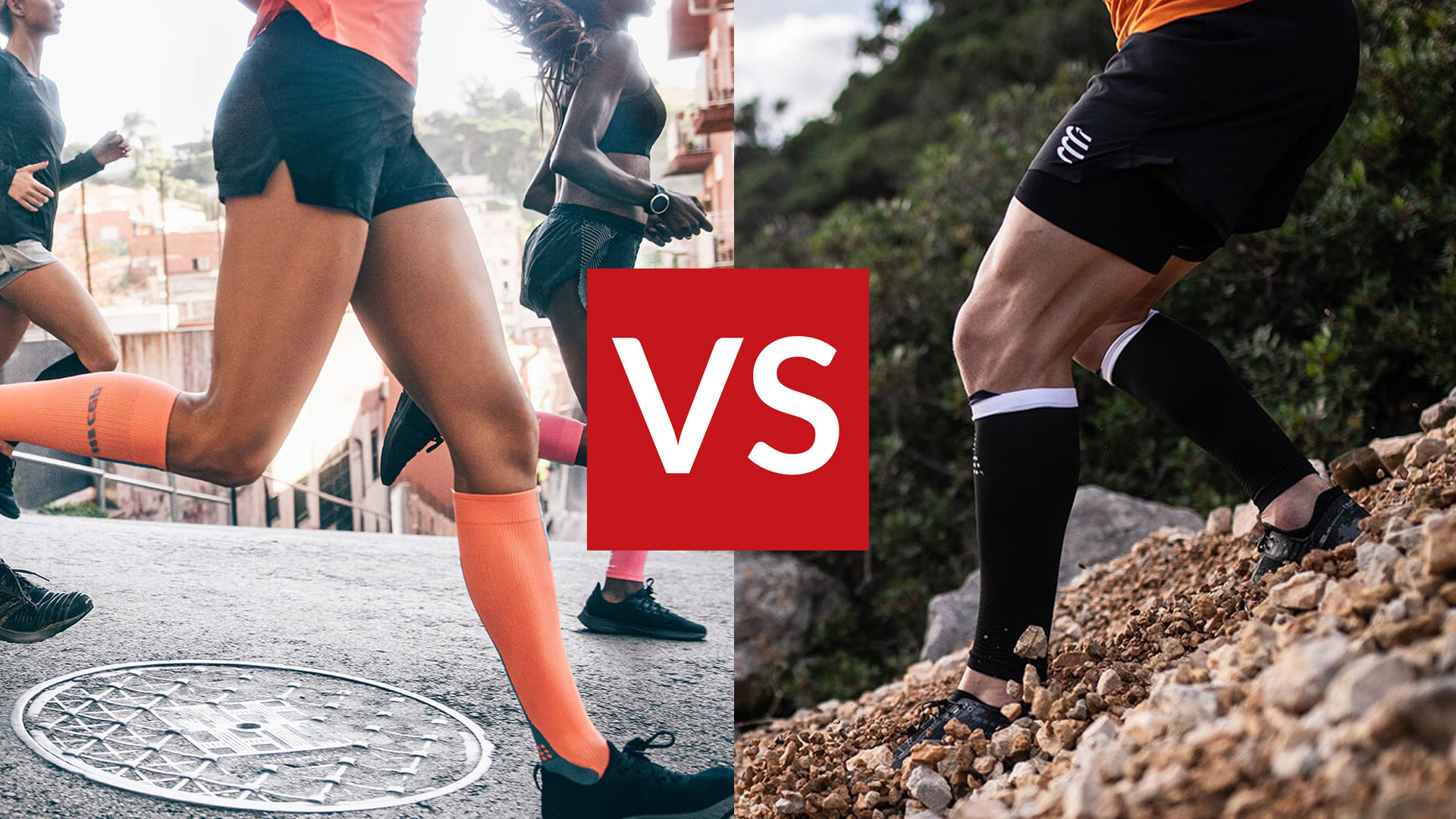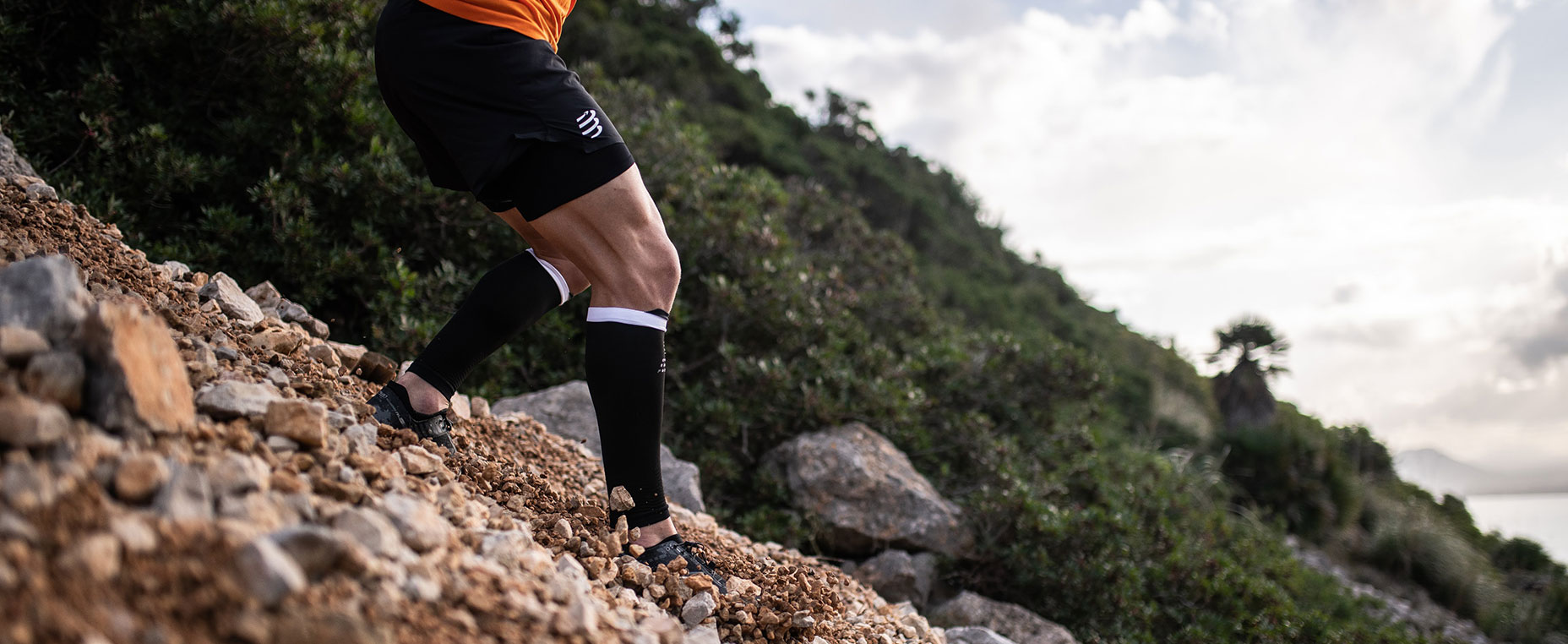Compression socks vs compression sleeves: which are best for training and recovery?
Which are better: compression socks or compression sleeves? There is only one way to find out (by reading this article)


For many runners, whether or not they should wear compression socks is confusing enough but throw compression calf sleeves in the argument, and things will escalate very quickly. Why would anyone spend the same amount of money (or more) for sleeves that don’t even protect your feet? What’s the benefit of wearing compression sleeves over wearing compression socks? These are the serious questions we’ll be trying to find an answer for here.
If you’re in the market for the best compression socks for running, make sure you check out the comprehensive guide we created about all things running compression socks. Find out how tight compression socks are supposed to be for running and what are the benefits of wearing compression socks for running.
Why should you wear compression socks for running
When looking for compression garments for running, you will most likely come across a lot of compression socks, very rightly so. Running compression socks provide more protection than compression sleeves, especially around the ankles, not to mention they cover the foot and prevent it from swelling.
Compression socks tend to stay in place more than sleeves, too: if you ever wore knee braces, you know the pain of having to wriggle them to the right position every two minutes. And although compression running socks can still roll down, at least they can’t roll down and up like ill-fitting compression sleeves.
Compression socks for running also have the added benefit of providing graduated compression straight from the toes (sort of), preventing blood from pooling in the foot. This makes them ideal to wear for recovery, something you should be wearing as compression socks anyway, not to mention other activities such as office work and long-haul flights. Compression sleeves certainly lack functionality from this perspective.

Why should you wear compression sleeves for running
If compression socks have so many benefits, why would you choose compression sleeves instead? Compression sleeves are more customisable in the sense that you will be able to tailor the ‘foot part’ and the ‘calf part’ of your running gear more effectively.
Admittedly, not everyone wants to have compression around their feet but would benefit from some compression around the calves. This means you can wear cushioned running socks with a compression sleeve and run in maximum comfort while also enjoying the benefits of compression around the calves.
Get all the latest news, reviews, deals and buying guides on gorgeous tech, home and active products from the T3 experts
There are also runners who have large feet and small calves: they might not be able to find the perfect compression socks, large enough for their feet but without being too loose around the calves. Being able to wear fitting foot and calf protection might only be achievable by getting separate socks and calf sleeves.
Since compression sleeves don’t go into the shoes either, they will less likely to get holes in them. There is no heel rubbing or toenails working through the fabric when wearing compression sleeves, so these garments will probably serve you longer than performance compression socks.
Most importantly, the design of compression sleeves is generally better and rather vibrant, which might be a deciding factor for those who prefer to run in style. Finding funky compression sleeves will be an easier task than finding compression running socks with some personality.

Matt Kollat is a journalist and content creator for T3.com and T3 Magazine, where he works as Active Editor. His areas of expertise include wearables, drones, action cameras, fitness equipment, nutrition and outdoor gear. He joined T3 in 2019.
His work has also appeared on TechRadar and Fit&Well, and he has collaborated with creators such as Garage Gym Reviews. Matt has served as a judge for multiple industry awards, including the ESSNAwards. When he isn’t running, cycling or testing new kit, he’s usually roaming the countryside with a camera or experimenting with new audio and video gear.